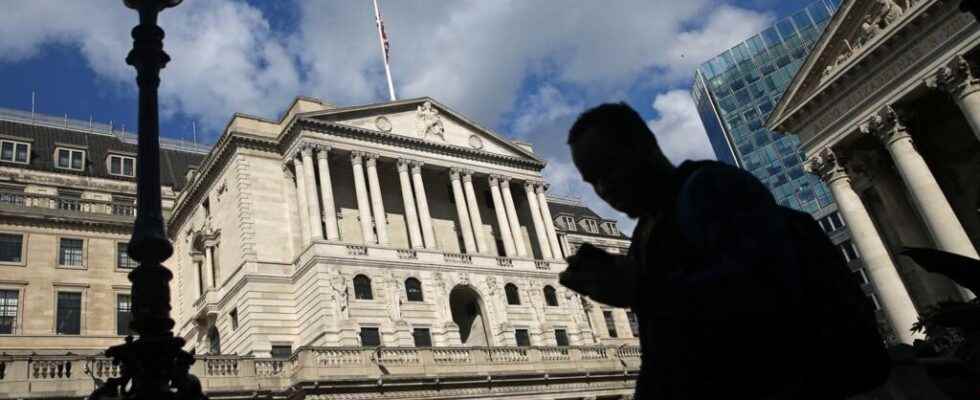The Bank of England follows in the footsteps of the Federal Reserve and the European Central Bank, and raises its main key rate by 0.75 points, to 3%. A measure supposed to curb inflation which could reach 10.9% in October.
The key rate is now raised to 3%. It should then continue to rise, but less than what the markets expect, warns the Bank of England, because this is already weighing on the economy. The Institution navigates on sight, believe many specialists. According to them, the changes of direction of the British government fuel the uncertainty which hangs over the economy of the country.
All central banks are somewhat in the dark and act from day to day.
Michel Aglietta, monetary policy specialist at the Center for Prospective Studies and International Information
From the end of September, the Bank of England had foreseen the disastrous effect of the budget announcements of former Prime Minister Liz Truss. Costly and poorly quantified, these announcements caused the UK debt rate to soar. The bank then proceeded to buy back long-term bonds, partially calming the markets.
Rishi Sunak’s government seeks to implement budgetary rigor to bring down inflation. It is still too early to know if this strategy will work. What is certain, however, is that the British economy has entered into recession. And this, estimates the Bank of England, could last until mid-2024.
“ If the cost of credit goes up, clearly the margins for businesses are going to go down and some small businesses might have to shut down for a while and not be able to operate and so you have at that time a recessive process that unblocked “Explains Michel Aglietta, Emeritus Professor of Economics, specialist in monetary policy at the Center for Prospective Studies and International Information.
Real estate market hit hard
This new increase is in any case very worrying for all people on the real estate market, reports our correspondent in London, Emeline Wine. Owner of an apartment since 2018, Sabrina chose a fixed rate loan for five years. This expires next year and the Londoner fears an explosion in reimbursements. ” We expect to go from 1,800 euros per month to 3,000. With the rise in the prices of everything, food, energy… It’s going really difficult and it’s worrying “, she explains.
In real estate for 20 years, Matt Turner sources and negotiates properties for clients. He notices a tight market for several months already. The first affected by the rise in rates are first-time buyers and tenants. ” It will make the purchase much more complicated, especially for first-time buyers who are much more dependent on credits. However, when the markets are less stable, more people turn to renting, and there are few properties available. We already see tenants fighting at auction, it will only get worse “, he analyzes.
The broker expects to see more and more people forced to sell their homes. ” If you bought a property two years ago, when rates were very low, and your credit is about to expire, your maturities will triple. Many people will not be able to afford it, and will have to put their property back on the market “says Matt Turner. Property prices are expected to start falling in 2023, by as much as 10%.
